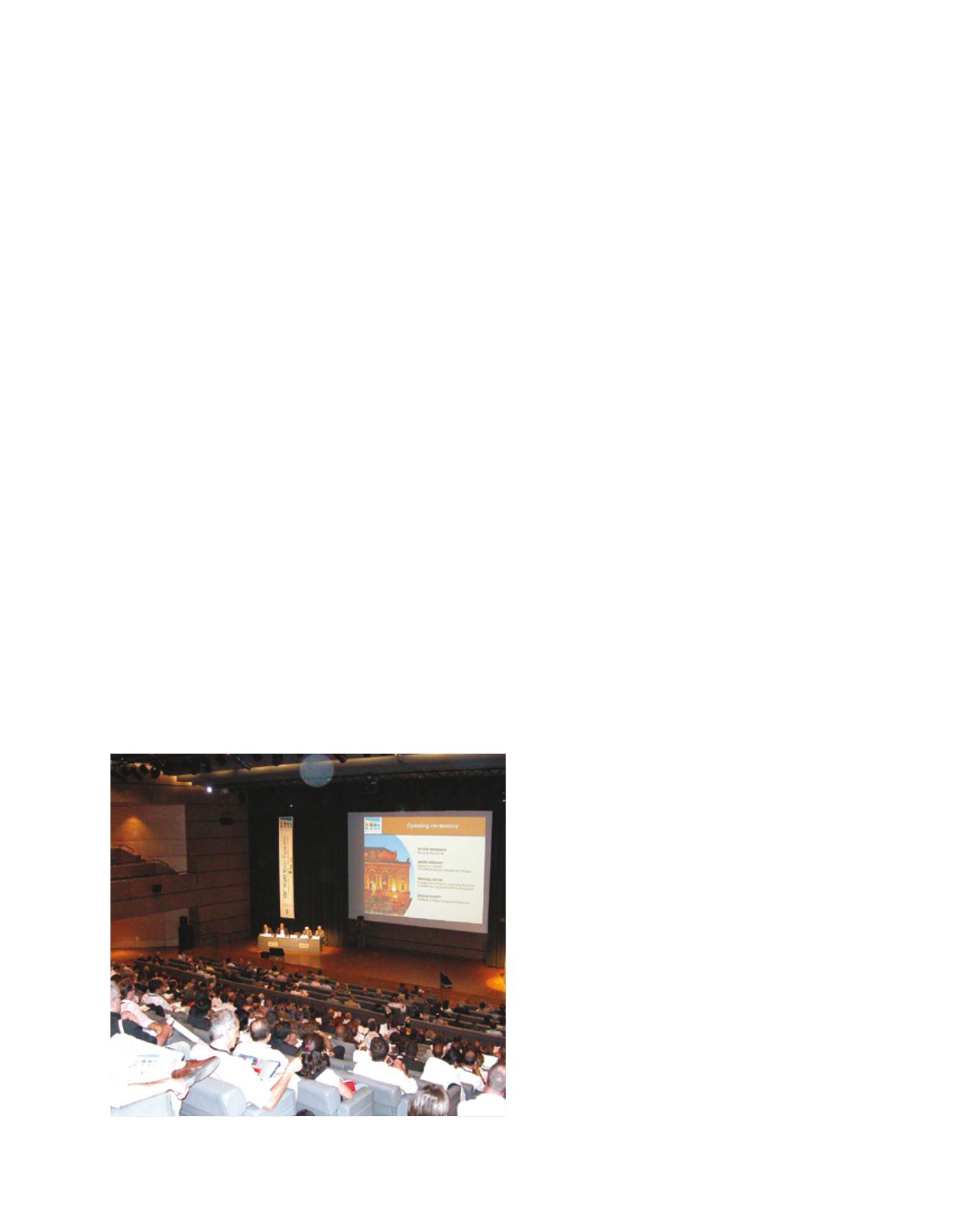

[
] 309
I
nternational
C
ooperation
on
W
ater
S
ciences
and
R
esearch
requires interdisciplinary action and international coop-
eration is a driving force behind the association.
IWRA has developed geographical committees to
further implement its mission and focus its activities.
These committees allow for extensive regional network-
ing among IWRA members.
Exchange of knowledge through publications
While promoting cooperation among its members and
with other organizations, IWRA seeks to facilitate knowl-
edge generation and exchange among its members and
the wider public through several publishing activities.
IWRA’s peer-reviewed journal,
Water International
(WI), places a specific emphasis on linking knowledge
to policy. Regular series of special issues are published
in partnership with other major international organi-
zations. For example, the March 2013 special issue
focused on the relevance of the 1997 United Nations
Water Convention in the twenty-first century and was
published in partnership with the World Wildlife Fund
and the International Hydrological Programme (IHP)
Hydrology for the Environment, Life and Policy Centre
for Water Law, Policy and Science, under the auspices of
the United Nations Educational, Scientific and Cultural
Organization (UNESCO) at the University of Dundee. WI
offers an accessible platform for publication and dissemi-
nation to various organizations such IWMI. Furthermore
it represents a high-level publication, being published by
a well-known editor and enjoying a wide readership. In
2012 WI achieved the top position, in terms of impact
factor, for water journals related to water policy.
The
IWRA Update
newsletters compile and share
information from all IWRA members. Along with tools
such as the experts database offered for IWRA members,
the newsletter ensures this exchange of information.
In addition, books are often published in partnership
with other international water organizations such as the
International Water Management Institute (IWMI). In
these various forms, IWRA is contributing to building
cooperation on knowledge and research on a political,
scientific and a wider public level.
Cooperation by encouraging membership
IWRA manages the Toyoko and Hiroshi Hori
Education Fund which provides support for member-
ship of the association for promising scholars from
developing economies, especially those designated
by the Organisation for Economic Cooperation and
Development (OECD) as least developed. Recipients
must have a clear financial need, and come from coun-
tries or regions that are OECD least developed areas
as well as being areas significantly underrepresented in
IWRA membership. The grants include full membership
of IWRA, which covers subscription to WI and access
to all the other advantages IWRA offers its members.
The grants are a means at an individual scale to transfer
knowledge to experts who show potential to develop
activities in their country and region, and to create a
network of water experts.
The principal objectives of IWRA, as defined by its constitution
and bylaws, are to:
• lead and influence water policy and governance
• develop and publicize methodological tools for assessment,
improvement and conjunctive use of water
• advance water resources planning, management, development,
technology, research and education at international, regional and
national levels
• provide a multidisciplinary forum to address and discuss water issues
• generate, synthesize and disseminate knowledge and information
in the area of water and related resources and the environment
• encourage, promote and participate in international, regional,
national and local programmes and activities related to water
resources for the common benefit of humankind and the biosphere.
As mentioned in its first objective, IWRA aims to act in the field
of water policy, and it seeks to continually advance water resource
decision-making by improving the collective understanding of the
physical, ecological, chemical, institutional, social and economic
aspects of water. IWRA’s objective of playing a role in water policy
is closely linked with the necessity to develop knowledge and under-
standing of water resources, which implies developing the scientific
aspects of water resources including economics, sociology and law.
To achieve its goals, the actions of IWRA are oriented towards
improving exchanges of information and expertise among its own
members and the wider public, and networking with other organi-
zations to advance and develop common objectives. For instance,
in preparation of its 14th World Water Congress (WWC), IWRA
developed a strong partnership with the International Association
for Water Law, strengthening the themes and the sessions related to
legal and governance aspects.
Furthermore, IWRA actively promotes the exchange of knowledge
and experiences across countries and regions. The critical importance
of locally-based knowledge and experience is strongly emphasized
in its information exchange activities. The belief that sustainability
The World Water Congress provides a forum for global knowledge-sharing
Image: IWRA/Soo


















